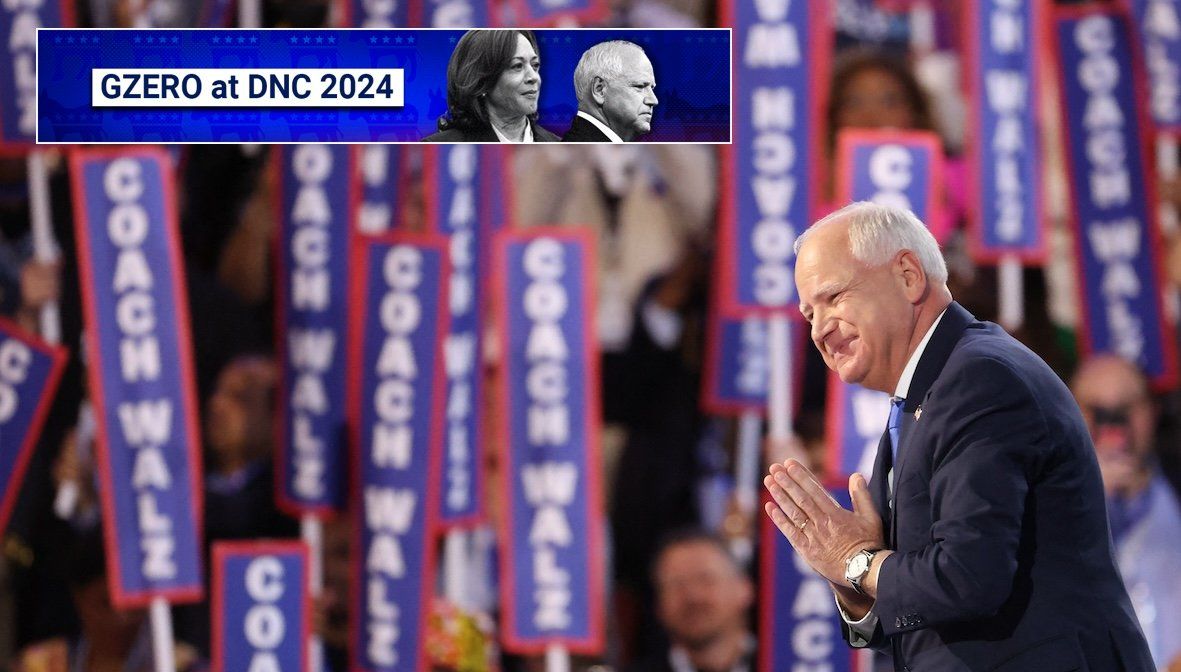Minnesota Gov. Tim Walz had a heavy task before him when he stepped onto the Democratic National Convention stage Wednesday night to formally accept the Democratic Party’s nomination for vice president. He’s a relatively unknown politician who was tapped to be Vice President Kamala Harris’ running mate — in an election unlike any this country has ever seen — earlier this month. Walz needed to deliver and sell himself as a viable, attractive VP candidate. And he was following some tough acts: former President Bill Clinton, Stevie Wonder, and a little-known talk show host named Oprah Winfrey.
By the time Walz was done speaking, however, the crowd in Chicago’s United Center was roaring with approval.
After walking out to the beat of John Mellencamp’s “Small Town,” in an allusion to Walz’s Nebraska roots, the Minnesota governor took it upon himself to lay out his life story — he was introducing himself to the country. Walz talked about serving in the military, falling in love with teaching, coaching high school football, and ultimately transitioning into politics.
“It was my students who first inspired me to run for Congress. They saw in me what I hoped to instill in them — a commitment to the common good,” Walz said.
Walz is a progressive, which could be a double-edged sword for Harris. He could help her draw in more left-leaning voters who’ve soured on the Democratic Party in recent years, but he might also turn off centrist voters who are on the fence.
But Walz leaned into his progressive record in his speech, at times contrasting his policies as governor with the culture wars being waged by many Republican governors and politicians. “While other states were banning books from their schools, we were banishing hunger from ours,” Walz said at one point, referring to his free school lunch program.
Walz said he would be an advocate for personal freedoms, summing up his view with the phrase: "Mind your own damn business." He also said Harris would "stand up and fight for your freedom to live the life that you want to lead."
Walz laid out what Harris would do for the country as president, including cutting taxes for the middle class, taking on big pharma to lower prescription drug prices, and fighting to make homes more affordable.
He wrapped up with a rallying cry for Democrats. “We’ve only got 76 days to go. That’s nothing. There’ll be time to sleep when we’re dead,” Walz said, offering a countdown until Election Day, with the crowd erupting in response.
While Walz’s speech was well-received at the convention, it remains to be seen whether it resonated with a national audience. Democrats are clearly fired up now that Harris is their nominee, but polling shows that she still faces a tight race with former President Donald Trump — and riling up party loyalists is a lot easier than winning over undecideds.
Walz was “very good, but the message seems very targeted toward Democrats,” says Jon Lieber, Eurasia Group’s managing director for the US, adding that the more important speech of the night was likely from Oprah Winfrey, who “was speaking to a broader audience.”
“Democrats like to paint Walz as a normal guy who can appeal to ‘everyday Americans,’ but the fact is that the margins in his two elections were pretty consistent with a D-leaning state that’s divided around 55/45 party lines,” Lieber adds. “He seems like a dedicated public servant, caring teacher and coach, and devoted family man, but I’m just not sure any of that translates into votes.”
